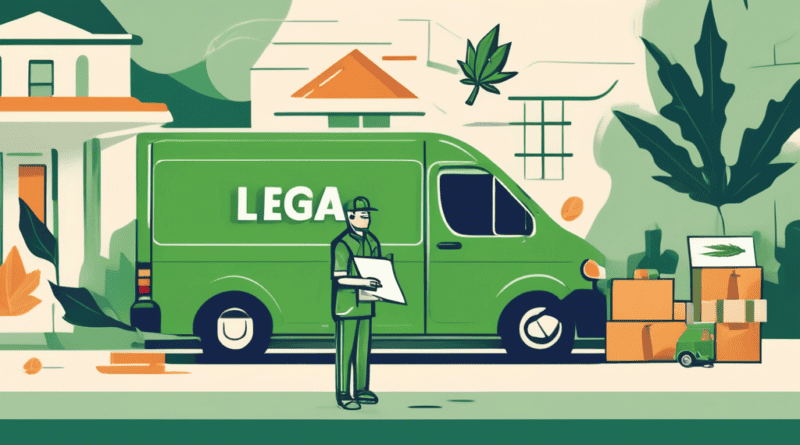Legal Implications of Cannabis Delivery Services
The evolution of cannabis laws across various regions has paved the way for the emergence of cannabis delivery services. As these services grow in popularity, it is essential to understand the complex legal landscape that governs them. Ensuring compliance with the myriad of regulations helps mitigate risks and promotes responsible usage.
Federal vs. State Laws
In countries such as the United States, where cannabis remains illegal under federal law but is permitted for medical or recreational use in numerous states, delivery services navigate a particularly treacherous legal terrain. Federal law classifies cannabis as a Schedule I substance, making its possession, distribution, or delivery a federal crime. However, states that have legalized cannabis have enacted their own sets of regulations to facilitate lawful delivery services.
It is crucial for businesses operating in this domain to ensure that their operations are strictly within state boundaries to avoid federal prosecution. Intrastate delivery—where the delivery does not cross state lines—is often safer from a legal perspective. Many states have developed frameworks that provide licenses to delivery services, thereby sanctioning their operations under specific conditions.
Licensing Requirements
Acquiring a license to operate a cannabis delivery service typically involves several steps, each dictated by local laws. These steps may include background checks, financial disclosures, and the demonstration of a comprehensive knowledge of cannabis regulations. The licensing process aims to ensure that only reputable and compliant entities can offer delivery services.
States like California have stringent requirements for obtaining a cannabis delivery license. Applicants must prove adherence to health and safety standards, maintain robust record-keeping practices, and employ staff who meet particular eligibility criteria. In contrast, states with nascent cannabis programs might have less elaborate regulations, though they are generally moving towards greater oversight.
Age Verification and Restricted Deliveries
Delivery services must implement rigorous procedures to verify that customers are of legal purchasing age. Most regions require that the recipient provide government-issued identification upon delivery. This practice helps prevent underage access and ensures that the service is lawful.
Additionally, deliveries are often restricted regarding the locations to which they can be made. For instance, deliveries to schools, parks, or federal properties are usually prohibited. Businesses must be vigilant in ensuring that their deliveries comply with these geographical limitations.
Security Measures
Cannabis delivery services face unique security challenges due to the high value of their product and the cash-heavy nature of the business. Legal mandates often require the implementation of comprehensive security measures. These may include GPS tracking of delivery vehicles, the use of secure and tamper-evident packaging, and ensuring that delivery personnel are trained in security protocols.
Several states necessitate that delivery logs are meticulously maintained. These logs should capture details of each transaction, including the date, time, and recipient information, thus creating an audit trail that regulatory bodies can review.
Privacy Concerns
The delicate nature of cannabis transactions means that the privacy of consumers must be safeguarded. Regulations often require that delivery services protect customer information from unauthorized access or breaches. This obligation includes securing stored data and ensuring that personal information is only used for legitimate purposes such as verifying identity and completing transactions.
Conclusion
Operating a cannabis delivery service involves navigating a landscape fraught with legal challenges. By understanding and adhering to federal, state, and local regulations, businesses can provide a valuable service while minimizing risks. The key lies in maintaining rigorous compliance through proper licensing, robust security measures, stringent age verification processes, and unwavering consumer privacy protections. As the legal environment surrounding cannabis continues to evolve, staying abreast of legislative shifts remains crucial for sustainable operations.

